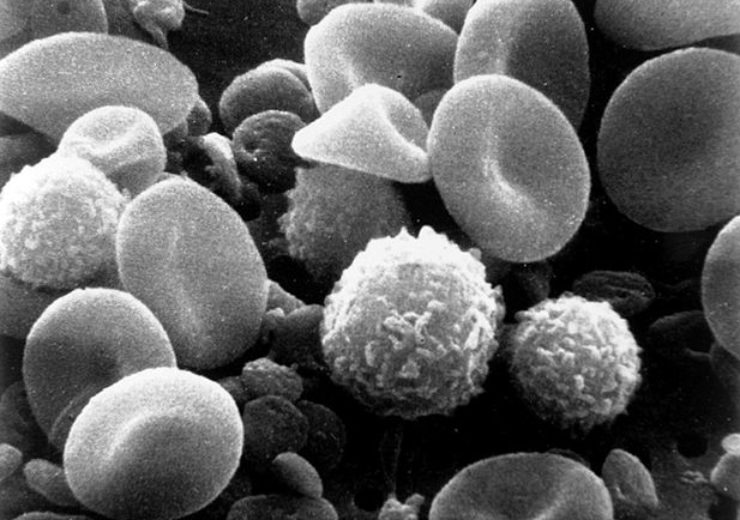The studies will be presented this week at the American College of Rheumatology (ACR) Annual Scientific Meeting in Atlanta

Image: A scanning electron microscope image with red blood cells, several white blood cells Innovaccer’s Care Management Solution. Photo: Courtesy of Bruce Wetzel and Harry Schaefer/Wikipedia.org
The Lupus Foundation of America is developing evidence-based, online self-management education programs for people with lupus to enhance disease management skills, communications with physicians, treatment adherence and quality of life. The studies will be presented this week at the American College of Rheumatology (ACR) Annual Scientific Meeting in Atlanta. Both self-management education programs were in part, supported by the Centers for Disease Control and Prevention under Cooperative Agreement Number NU58 DP006139.
In the first study, Development and Usability Testing of Take Charge: An Email Series to Increase Knowledge of Self-Management Skills in People with Lupus, a small group of 13 individuals with lupus provided feedback on an early version of Take Charge, an email series designed to educate people with lupus about new skills to help manage their disease.
Take Charge is an educational email series developed by the Lupus Foundation of America to increase knowledge of self-management skills among newly diagnosed people with lupus. An email containing information on a lupus self-management skill was distributed weekly for six weeks to subscribers. Each email provided educational information, cues to action and links to National Resource Center on Lupus material on a proven disease self-management skill, such as symptom management. When the group was asked if they tried at least one self-management skill presented in the email series, 69% of participants said ‘yes’. Almost half also indicated they used content from the emails to help them prepare questions for their next doctor’s appointment, which is the skill most participants reported doing.
“This research shows email is a promising approach to address topics like preparing for doctor’s visits, explaining lupus to others, and identifying and tracking lupus symptoms. Additionally, email as a delivery method shows great potential for increasing knowledge of lupus self-management skills, because it is an easy-to-use format delivered directly to a person’s inbox,” said Karin Tse, MPH, senior research coordinator, health outcomes, at the Lupus Foundation of America. “Take Charge empowers people with lupus to take control of their health.”
A second study presented at the meeting, Design and Development of an Online Intervention for Lupus Self-Management Based on the Transtheoretical Model of Change, provides insights on a program for people with lupus to help them manage their disease through a comprehensive and customized online program.
Strategies to Embrace Living with Lupus Fearlessly (SELF) is a unique evidence-based online program. SELF helps people with lupus improve four key lupus self-management behaviors: managing symptoms, stress, medications and working with their health care team. The program is based on the transtheoretical model of behavior change (TTM), which involves learning a healthy behavior through strategies and processes of change. The Foundation recruited five individuals with lupus with diverse backgrounds to serve as early program testers.
“This TTM model has been used across other chronic disease areas successfully, and we believe it holds promise in lupus self-management. The program allows participants to actively engage with content at their own pace and as they’re ready to receive information,” said Patricia Davidson, vice president, education, Lupus Foundation of America. “Preparations are underway for a multi-site pilot to test feasibility and acceptability of the program among a diverse group of adults with lupus.”
Participants begin the program by completing assessments focused on four key behaviors. Participants then select one key behavior to focus on, and based on their responses, an online portal provides activities and tools (such as a symptom tracker and a journal) and links to educational resources and peer support. Participants can sign up to receive emails or text messages with encouragement, tips and links to the portal. The program is also structured to be accessible in a variety of ways. Participants can spend as much time on the program to suit their needs – from ten minutes a day to an hour or any variation. SELF is accessible via mobile phone, tablet or computer.
Every 90 days, the program administers a comprehensive assessment and delivers a printable report. The report provides data on lupus symptoms, self-management behaviors and stage of change that can be shared with a health care provider.
During the ACR Meeting (November 9-13), the Lupus Foundation of America and its Inside Lupus Research team will tweet important research news coming out of the world’s premier rheumatology conference.
Source: Company Press Release
